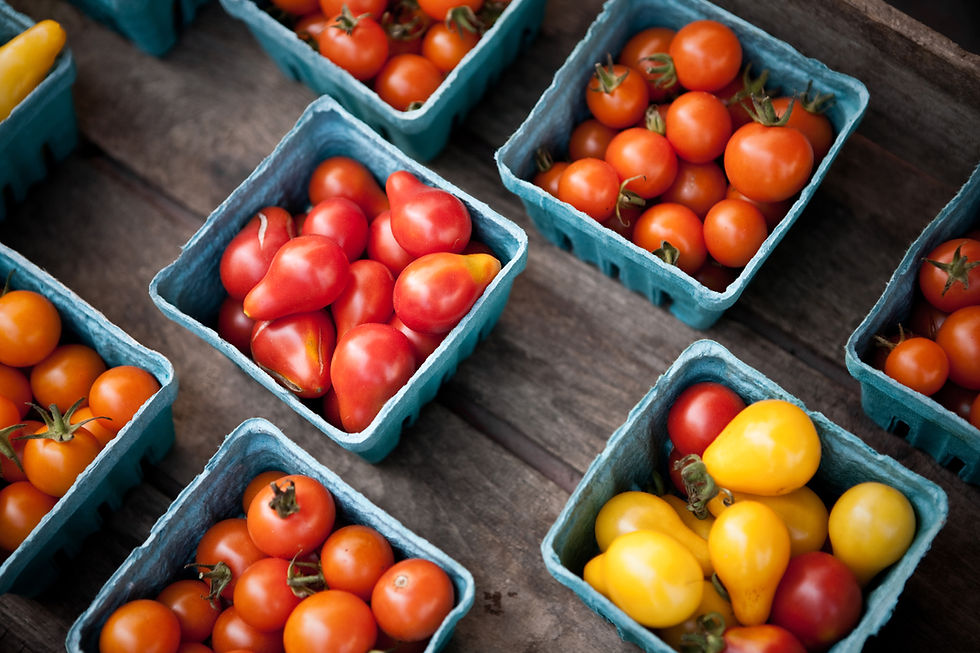What Food Relieves Depression?
- Alexandra Massey

- Dec 14, 2017
- 4 min read
It’s almost impossible to believe that food relieves depression; but it does.
Researchers at Deakin University ran a study[i] and reported the results in January 2017 how diet can help people who suffer from severe depression.
It appeared that after 12 weeks of following a healthy diet, 30% of the participants identified a significant lift in their depression symptoms.

Why Do We Eat When We’re Depressed?
We’ve often seen the lead in a romantic comedy drown their sorrows in a tub of ice cream. I know I have buried myself in a tin of chocolates when depression has hit me at a low point.
But here’s the thing, there’s ‘payback’ time.
In this image it’s possible to see how the cyclical effect of eating to bury depression can spiral downwards.

It starts off with feeling back and needing to push away the emotions. Then, as the food hits the stomach, we feel numb but also tired. Then it takes more processed foods to get that ‘fix’ again.
What’s The Link Between Diet And Depression
It seems it’s all coming down to the health of the gut.
Associate Professor Felice Jacka, School of Medicine, Deakin University stated 'We’re increasingly understanding that the gut is really the driver of health, including mental health, so keeping fibre intake high is very important.'
There’s a part of the brain called the hippocampus and this is a small organ located within the brain's medial temporal lobe. It forms an important part of the limbic system, the region that regulates emotions.
Professor Jacka and her team found that the cohort who ate more fish, fruit and vegetables had a larger hippocampus compared to others who ate a diet comprised of take away and processed foods. There was also a correlative risk of depression for the people in the second category.
Another study[ii] corroborates with the findings above but goes even further by state that severe depression is linked with brain inflammation and a poor diet encourages inflammation of the whole body, but especially the brain.
What Food Relieved Depression For Me?
I wrote a book called Superfoods To Boost Your Mood based on what worked for me to beat depression.
Here’s a summary of those food types.
Tryptophan
Foods rich in the amino acid tryptophan facilitate the body’s uptake of the wonderful neurotransmitter serotonin. We want plenty of serotonin to feel good and beat depression. high tryptophan foods are:
• Soy products: soy milk, tofu, soybean nuts • Seafood• turkey• Whole grains
• Beans• Rice• houmous• Lentils• hazelnuts, peanuts• eggs• Sesame seeds, sunflower seeds
Omega-3
Omega-3 fatty acids are another type of compound which has been proven to lift depression. This important nutrient is critical for good health. Omega-3 compounds are a form of polyunsaturated fats, one of four basic types of fat that the body derives from food. A
ll polyunsaturated fats, including the omega-3s, are increasingly recognized as important to human health but they cannot be produced by the body, which means they need to be provided by our diet.
A lack of Omega-3 mood- boosting nutrients may lead to depression and other mental health problems. Here is a list of the gorgeous Omega-3 fat sources:
• Fish• Canola oil • Olive oil• Flaxseed oil • Walnuts• Venison
Folic Acid
Folic acid is also a brilliant depression fighter and research shows that people with low levels of folic acid are more like to suffer from depression. Scientists at the UK Medical Research Council recommend plenty of folic acid daily as a preventative measure for depression.
Folic acid is a water-soluble vitamin and the body can’t retain it for long, with any excess being expelled in the urine. This means that any of us could be deficient in folic acid at any one time; it is a hard vitamin to keep in the body. But eating some of these foods will help keep your levels high.
• Beetroot• Spinach• Broccoli• Avocados• Asparagus• Dried beans• Brussels sprouts
Magnesium
Magnesium deficiency has been strongly linked to depressive symptoms. It is necessary for the absorption of calcium and is the primary mineral required by the adrenal glands to help the body cope with stress.
Increasing your magnesium levels could help with muscle cramps, sleep problems, fatigue and depression. eat some of these foods to add magnesium to your diet:
• Spinach• Avocados• Barley• Pumpkin seeds• Sunflower seeds• Brazil nuts• Buckwheat, almonds
Vitamin B6
Vitamin B6 is a particularly brilliant vitamin for helping reduce susceptibility to mood changes and is a good mood-enhancer, excellent for irritability, aids good sleep and helps alleviate depression.
Foods high in B6 include:
• Sweet potatoes • Wholegrains • tofu• Nuts
• Seeds• Pulses• Avocados • Apricots• Asparagus
This is called the sunlight vitamin because the body produces it when the sun’s ultraviolet B (UVB) rays strike the skin. It is the only vitamin the body manufactures naturally and is technically considered a hormone.
Vitamin D
Vitamin D has been a key nutrient to help Seasonal Affective Disorder (SAD) sufferers and one study found that people with SAD who received increased amounts of Vitamin D achieved a significant improvement in depression symptoms – albeit after one month. Foods high in Vitamin D are:
• Prawns • Milk• Cod• eggs
Vitamin D supplements are cheap and easy to obtain and a wise investment for helping to beat depression.
References:
[i] http://this.deakin.edu.au/lifestyle/how-to-eat-your-way-to-happiness
[ii] https://jamanetwork.com/journals/jamapsychiatry/fullarticle/2091919




Comments